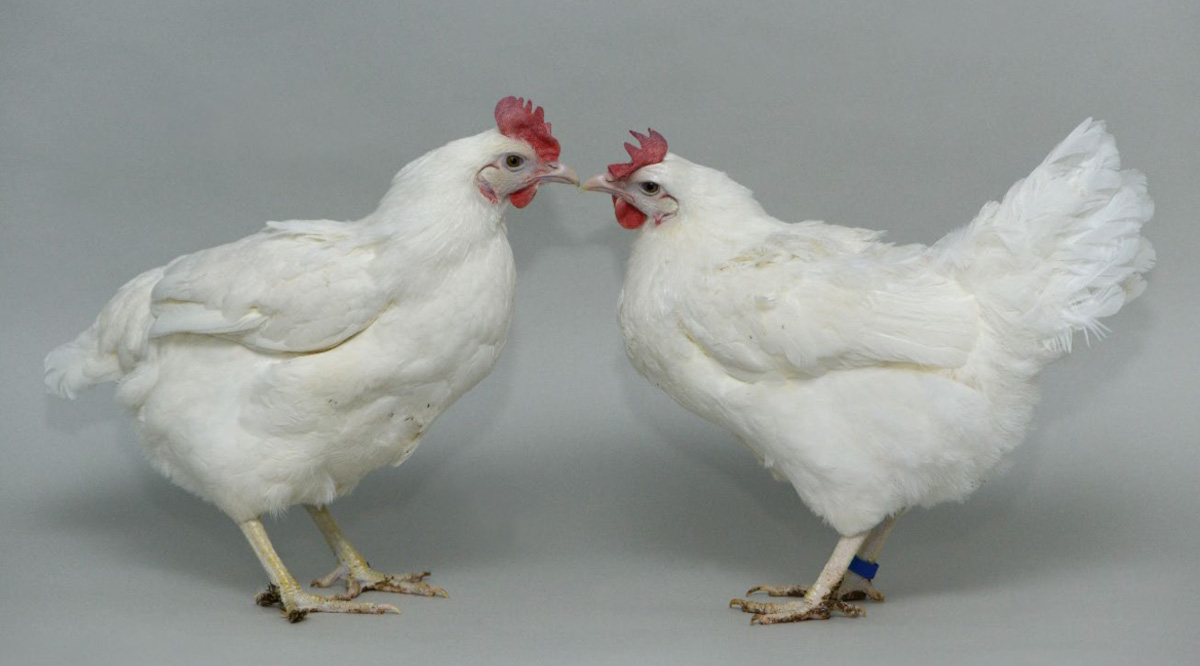
Scientists Develop Gene-edited Chickens to Limit Spread of Bird Flu
October 18, 2023| |
Scientists from the University of Edinburgh, Imperial College London, and the Pirbright Institute used gene editing techniques to identify and change parts of chicken DNA that could limit the spread of the bird flu virus in the animals.
Using gene editing techniques, the team of scientists bred the chickens and altered the section of DNA responsible for producing the protein ANP32A, a molecule that flu viruses hijack during an infection to help replicate themselves. When the ANP32A gene-edited chickens were exposed to a standard dose of the H9N2-UDL strain of avian influenza virus, commonly known as bird flu, 9 out of 10 birds remained uninfected, and there was no spread to other chickens.
To further test their resilience, the scientists exposed the gene-edited birds to an artificially high dose of avian influenza virus. When exposed to the high dose, 5 out of 10 birds became infected. However, the gene edit provided some protection, as the amount of virus in the infected gene-edited chickens was much lower than the level typically seen during infection in non-gene-edited chickens. The gene edit also helped to limit the spread of the virus to just one of four non-gene-edited chickens placed in the same incubator. There was no transmission to gene-edited birds.
The findings are an encouraging step forward, but experts highlight that further gene edits would be needed to produce a chicken population that cannot be infected by bird flu, one of the world's most costly animal diseases.
For more details, read the article in the University of Edinburgh News.
| |
You might also like:
- Scientists Create Gene-edited Allergen-free Chicken Eggs
- Australia's GEd Chickens to Help Improve Agriculture and Pharmaceuticals
- CRISPR Offers Glowing Solution to Male Chicks Culling Problem
Biotech Updates is a weekly newsletter of ISAAA, a not-for-profit organization. It is distributed for free to over 22,000 subscribers worldwide to inform them about the key developments in biosciences, especially in biotechnology. Your support will help us in our mission to feed the world with knowledge. You can help by donating as little as $10.
-
See more articles:
-
Plant
- Research Shows Potential Use of Building Waste in Growing Tomatoes
- Satellites Could Measure Crop Nutrients Over Large Areas
- Kenya's Environment Court Dismisses Case Challenging Importation and Cultivation of GM Crops
-
Animal
- Scientists Develop Gene-edited Chickens to Limit Spread of Bird Flu
- Review Explains Gene Editing's Contribution to Large Animal Research
-
Food
- World Food Day Highlights Role of Water in Food Security
- Experts Provide Updates and Potential of Gene-edited Fruits and Vegetables
-
Health
- Analysis of Genes for the Development of Vaccines for Bovine Tuberculosis
-
Read the latest: - Biotech Updates (February 18, 2026)
- Gene Editing Supplement (January 28, 2026)
- Gene Drive Supplement (February 22, 2023)
-
Subscribe to BU: - Share
- Tweet

